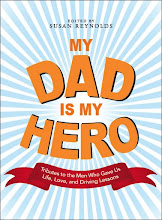
Photo courtesy Wikimedia Commons
Several years ago, I endured an uncomfortable plane ride home after visiting family. The roar of the jet engines—as well as people continually jostling against me as they walked the aisles—wore on my nerves and I felt frazzled. After what seemed like forever, the pilot announced we were circling Salt Lake City.
At that point, I became aware of a conversation in the seats behind me. Jeff, a young man from the Salt Lake City area, carried on an animated conversation with his seatmate, Laura, and seemed anxious to share his knowledge of the city with her. (Names have been changed.) After Jeff told her about the city’s nightlife, Laura turned the conversation to what it was like living among the Mormons.
My heart warmed when he explained that he didn’t mind living in Utah and had no problems with the members. However, joy turned to unease when Laura asked, “The Mormons have more than one wife, don’t they?”
I had no clue how many Latter-day Saints sat within earshot, but I felt an almost imperceptible increase in the tension around me, and I worried that the conversation would not end well.
Jeff responded with, “Oh yes, there are lots of them with more than one wife.”
He said it with such conviction that my annoyance level immediately skyrocketed and my worn-thin patience abandoned me. I wondered what right he had to speak so authoritatively on an issue about which he obviously knew nothing. I felt like whipping around in the seat and loudly proclaiming to Laura that Jeff had it all wrong
I recognized, however, that harsh words would create tension and drive away the Spirit at a time when I needed it most (see 3 Nephi 11:29). My mind roiled with thoughts of how to handle the situation. If I said something, would it immediately turn into an argument? Would other people feel the need to jump in on both sides of the issue?
On the other hand, I didn’t feel I could ignore the comment and my heart pounded anxiously as their conversation continued on the subject. Mentally bowing my head, I prayed, Please let someone speak up so Laura doesn’t walk out of here believing the Church currently practices plural marriage.
No one did; I realized the responsibility to correct the misconception resided with me and that I needed guidance. Taking a deep, calming breath, I sent a quick prayer for help heavenward. Then I turned around in the seat and faced the couple. “Excuse me. I’m not trying to eavesdrop, but I overheard you mention that the Mormons practice polygamy. I’m LDS, and although the Church did practice it at one time, we don’t anymore. Those engaging in polygamy today are not members but belong to splinter groups that aren’t affiliated with us.”
I waited for the verbal explosion.
A confused look crossed Jeff’s face. “You don’t practice polygamy? Oh, sorry, I thought you did. Aren’t there groups in Utah that do?”
Laura looked at me with interest, rather than the anger and derision I’d expected. I answered Jeff’s question about splinter groups and reiterated again that Latter-day Saints did not engage in the illegal practice of plural marriage.
They both thanked me for the information, and as I turned back around, I recognized the value of seeking the Spirit rather than just giving a knee-jerk reaction to an incorrect comment. I felt grateful for the prompting to take a calming breath before answering, which helped me control my anger and allowed the conversation to flow in a natural, non-confrontational manner. Responding with kindness had also afforded me the chance to learn that Jeff hadn’t intended to misrepresent the church, he simply lacked accurate knowledge.
In the October 2008 Conference, Elder Robert D Hales said, “In 1983, the First Presidency wrote to Church leaders, ‘Opposition may be in itself an opportunity. Among the continuing challenges faced by our missionaries is a lack of interest in religious matters and in our message. These criticisms create . . . interest in the Church. . . . This provides an opportunity [for members] to present the truth to those whose attention is thus directed toward us.’
“We can take advantage of such opportunities in many ways: a kind letter to the editor, a conversation with a friend, a comment on a blog, or a reassuring word to one who has made a disparaging comment. We can answer with love those who have been influenced by misinformation and prejudice—who are ‘kept from the truth because they know not where to find it’ (D&C 123:12). I assure you that to answer our accusers in this way is never weakness. It is Christian courage in action.”1
At the time of the incident, Elder Hales hadn’t yet given his talk in General Conference. However, I can testify to the wisdom of his counsel. It takes bravery to defend the truth as well as self-discipline to do so without anger, but with the help of the Spirit, we can use Christian courage and respond to inaccuracies with loving kindness.
It’s my hope that on that day, Jeff and Laura left the plane with a newfound regard for the church, and that non-members sitting nearby, listening to the conversation, felt the Spirit touch their hearts as well.
Notes
1. Robert D. Hales, “Christian Courage: The Price of Discipleship,” Ensign, Nov 2008, 72–75.
------© Cindy Beck------
This article sponsored by YourLDSNeighborhood.com.

Please show your appreciation by stopping for a visit. And take a minute to check out their newsletter, and yourLDSRadio as well!








